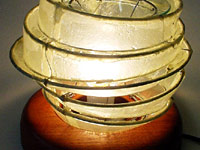Industrial Design - 3385
Program Summary
Faculty: Built Environment
Contact: Built Environment
Campus: Kensington Campus
Career: Undergraduate
Typical Duration: 4 Years
Typical UOC Per Semester: 24
Min UOC Per Semester: 3
Max UOC Per Semester: 27
Min UOC For Award: 192
UAC Code: 423002
International Entry Requirements: See International Entry Requirements
Award(s):
Bachelor of Industrial Design (Major)
Information valid for students commencing 2013.
Students who commenced prior to 2013 should go to the Handbook's Previous Editions
Program Description
Program Objectives and Graduate Attributes
1. Industrial Design Studio
2. Visual Communication of Design (Computer aided and manual methods)
3. Technology (Engineering materials and manufacture)
4. Marketing
5. Ergonomics
6. Design Management
7. Design Theory and Process
8. Design History
Program Structure
Semester 1
- IDES1031 Design Studio 1 (6 UOC)
- IDES1071 Mat & Tech Workshop A (6 UOC)
- IDES1162 Ind Design Communication B (6 UOC)
- MATH1041 Stats for Life & Soc Sciences (6 UOC)
Semester 1
- IDES2161 Industrial Design Studio 2A (6 UOC)
- IDES2163 Ind Design Communication C (6 UOC)
- IDES2201 Ergonomics (6 UOC)
- MARK1012 Marketing Fundamentals (6 UOC)
Semester 1
- IDES3073 Mat & Tech Workshop C (6 UOC)
- IDES3221 Industrial Design Studio 3A (6 UOC)
- MARK2051 Consumer Behaviour (6 UOC)
- Interdisciplinary Learning Course** (6 UOC)
- IDES3222 Industrial Design Studio 3B (6 UOC)
- MARK2052 Marketing Research (6 UOC)
- Interdisciplinary Learning Course** (6 UOC)
- General Education (6 UOC)
Semester 1
- IDES4291 Industrial Design Studio 4 (6 UOC)
- IDES4301 Project Research (6 UOC)
- IDES4372 Ind Desgn Mang and Practice (6 UOC)
- Open Elective (6 UOC)
- IDES4352 Industrial Design Project (12 UOC)
- Open Elective (6 UOC)
- General Education (6 UOC)
**Note: The 12UOC of Interdisciplinary Learning Courses can be undertaken at any stage from the end of Year 2 to the end of Year 4 including summer terms.
An indicative list of Interdisciplinary Learning Courses is below:
- BENV0006 BE OutThere Elective (6 UOC)
- BENV1221 People, Place & Design (6 UOC)
- BENV2140 Japan:Journey,Drawing & Design (6 UOC)
- BENV2305 Graphic Design for Architects (6 UOC)
- BENV2930 Living Architecture (6 UOC)
- BENV2937 Urban and Regional Design (6 UOC)
- BENV2943 Heritage Planning (6 UOC)
- BENV2949 Healthy Planning (6 UOC)
- BENV6701 International Planning (6 UOC)
- BENV6722 Cinematic Space (6 UOC)
- IDES4372 Ind Desgn Mang and Practice (6 UOC)
Embedding Interdisciplinary Education within programs is part of a wider Faculty curriculum development and program review process, it is the intent that the list of interdisciplinary learning courses will be expanded as new interdisciplinary courses are developed.
Honours
Academic Rules
2. To fulfil these requirements, students must complete:
- 156 UOC of specified core courses, being all those prescribed in the faculty regulations for this program
- 12 UOC of FBE Electives from the list of Interdisciplinary Learning Courses
- 12 units of open (free) electives, selected in accordance with the faculty regulations for undergraduate study in the Faculty of the Built Environment
- 12 units of General Education in accordance with University requirements
4. General Education courses may not be taken before a student enters Year 2 of the program.
Fees
Career Information
Professional Recognition
- Industrial Design
Area(s) of Specialisation









